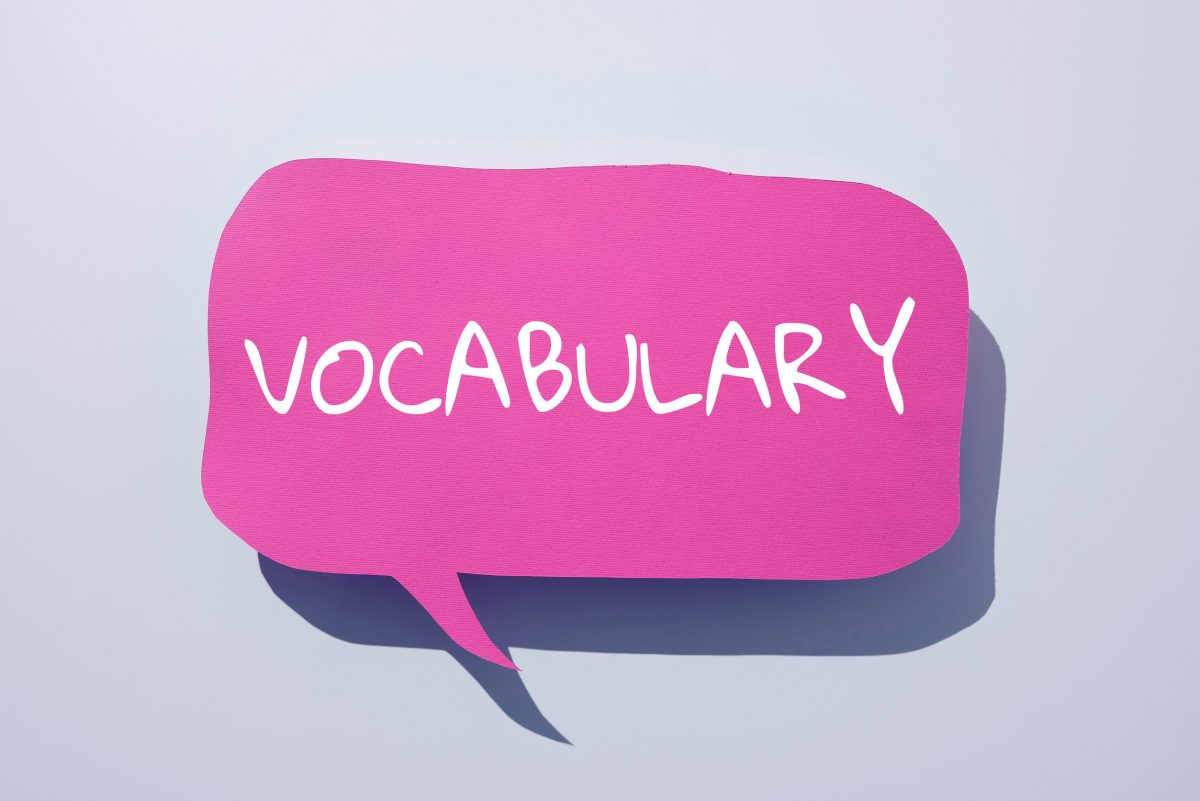What we at KidWrite call a “robust” vocabulary is one that makes use of specific words to convey a concept. So, it’s not that the water is very, very, very cold, but rather that it is frigid. It’s not that someone really isn’t very nice, but rather that the person is mean – or maybe unkind. You can’t know precisely until you understand the situation and pick the appropriate word. That’s where the thesaurus comes in.
Thesaurus
The Scholastic Children’s Thesaurus is a perennial favorite of ours. The Illustrations are eye-catching. The consistent use of fonts and colors for the word, part of speech, definition, and synonyms makes it easy for kids to find what they need. The definitions are short and kid-friendly, and there is a sample sentence or two for each entry. In short, it’s a “fun,” unintimidating book that brings more than 500 headwords (we call them keywords) and 2,500 synonyms to life.
Synonyms
I don’t know about you, but I learned that a synonym means the same thing as another word. Over the years, and especially while working with young kids, it has become clear that that is not the case. A synonym is more like a shade of meaning. As I worked with older kids and saw firsthand that their use of synonyms was so shaky that they usually resorted to the use of very or very, very something to describe a noun, it quickly became clear that this was not going to cut it when they had to read or write reports for business purposes. What they desperately needed were synonyms that expressed their precise meaning.
Blue
When you open a jumbo box of crayons or colored pencils, you’ll see that blue is just one shade of color in the section reserved for blue. There is sky blue, periwinkle blue, navy blue, and many more. Each of those shades refers to a specific blue that is lighter, darker, warmer, etc. in shade. Sure, you could say blue and call it a day, but think of the layers of meaning that would be lost. The same thing applies to the use of synonyms.
Learning
I’m a big fan of memorizing math facts and formulas – while also understanding the concepts behind the results. I still remember a dystopian film in which students were reciting the 12 times table. To this day, I know without doubt that twelve twelves are one hundred and forty-four. (I sincerely wish I had memorized the rest of the times tables!) But think about it: Memorizing math facts and memorizing 3,000 words are not the same things. The math facts help you to do more complex operations with less hesitation and error. Memorizing 3,000 words and their meanings might be a great idea, but it would only be the tip of the iceberg. There would be thousands more to go – and to what end?
KidWrite!
So, we use the thesaurus to teach vocabulary because it is our experience that getting close to the meaning of a word in a sentence is often enough to get kids to a level of understanding that allows them to continue with the reading. Rather than stop in confusion because they don’t know what it means to be competent, we can get kids to recognize that competent is a synonym for able: It is a word having something to do with the ability to do something. The purists among us may argue that the kids should learn all 3,000 words in the thesaurus by heart before moving on to a more advanced thesaurus and memorizing all of those words. We are more focused on giving them the tools they need to follow slightly more complex texts with comprehension while fostering a love of words in the process. They are also able to use what they’ve learned to produce more nuanced writing.
Bottom Line
Using a thesaurus to identify keywords and their synonyms makes it possible for a young reader to make a rough estimation of the meaning of a piece of writing. As they work on their writing skills in conjunction with this vocabulary and reading comprehension work, it is most often the case that they get excited. Once they are, they are eager to look for other words that are related to the keywords or concepts they encounter.
Next
In our next post, we’ll describe three games you can play with the thesaurus to get your kid up and running. Meanwhile, see more Vocabulary posts.
